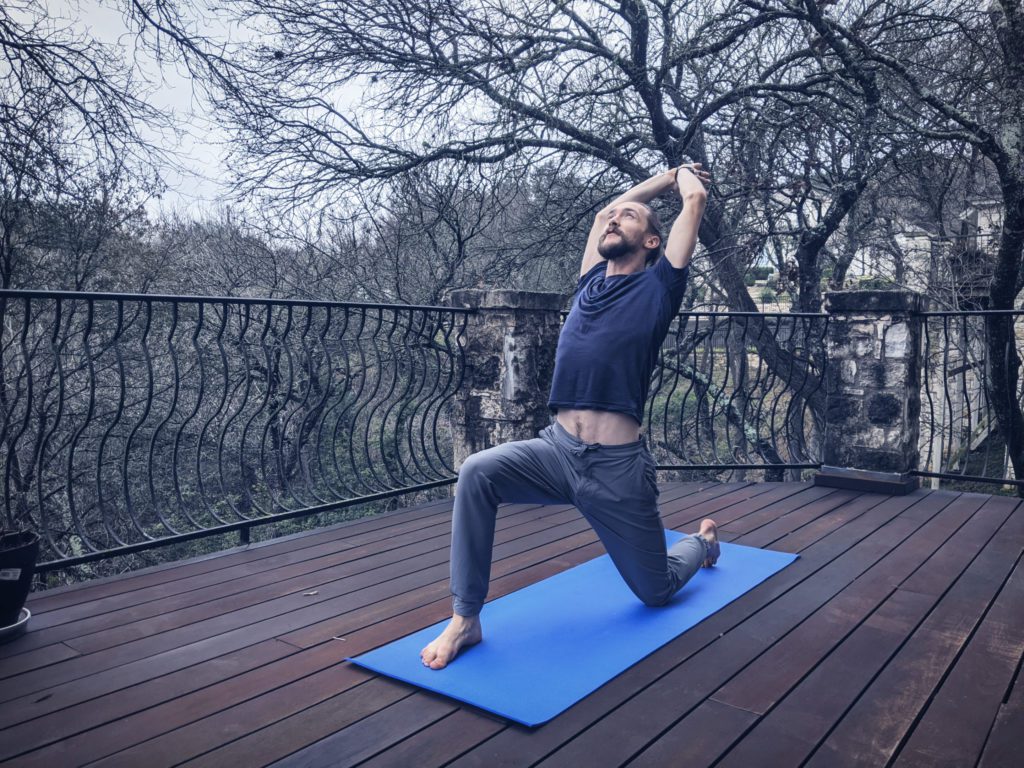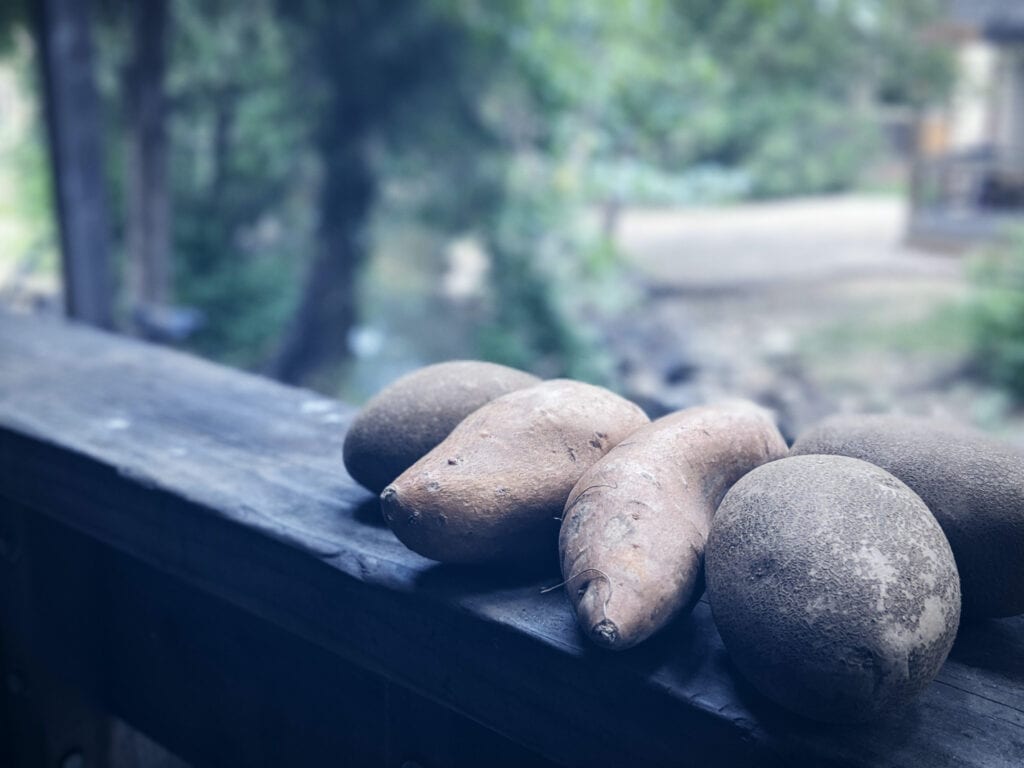Another way to understand what causes inflammation is to know the classifications of stress and its effects on the body. With this in mind, we can say that even running causes inflammation in our bodies.
Running causes stress, and is considered a way to overexert your body on purpose. In reaction to the stress from running, your body becomes inflamed. However, your body has an amazing ability to recover and repair to make you even stronger than before.
Other stresses on the body can be good too – as long as they do not cause any chronic inflammation damage and are not in excess

Glass overflow analogy
No one wants more stress in their lives than they already have. But you need to keep pushing and testing your body towards its optimal stress levels to improve. However, putting stress on your body can end up being one big balancing act.
A great way to understand how these balancing acts work is imagining stress as water and your stress-holding ability as the glass. When you exert stress on your body, you pour a little water in at a time. You never want the glass to be without water (stress) because you will never improve your physical abilities and eventually, would waste away. But you also do not want your glass to overflow with water (stress) and cause a physical or mental breakdown.
Glass overflow from autoimmune diseases
Any type of stress can pour water into your glass, be it mental, physical, or any external pathogens. If you suffer from any autoimmune diseases, your immune system is fighting against itself, severely stressing your body.
If you don’t know how an autoimmune disease works, check out my blog post explaining exactly that, right here.
It’s beneficial to know that autoimmune diseases can often go undetected for a while, slowly stressing your body in minimal ways. These minimal stresses do eventually add up. Imagine the water is being dripped into your glass, slowly – but the glass is still filling up. It’s only when the water overflows that autoimmune-related problems become apparent.
These stresses from autoimmune issues have ultimately been building for years. The last stress factor that pushes you over the glass’ edge could be anything from losing your job, moving houses or cities, having a fallout with a friend, or even overtraining. It’s all dependent on our bodies.
A key takeaway from this analogy is that it’s not only one problem that causes issues within your body; it’s usually a multitude of factors that build up over time and can eventually overflow.
An extreme case of having your glass overflow is the example of elderly couples dying within weeks of each other. While it could be a coincidence, have you ever considered it could be due to the stress of losing a loved one? The process of losing a loved one ultimately causes their body’s stress levels (water) to overflow. I am trying to emphasize to you that once you see all varieties of stressors as an additive effect, you can then start to understand chronic illnesses and how to manage them.

How the body excels
Now, this all isn’t to say that we don’t want stress in our lives. We do! Without stress, we would never improve mentally or physically – and we could potentially shorten our lives.
Why do you think running is good for you? It’s not because you’re crushing your knees with every step or wheezing as your run uphill; it’s because you’re training your body to deal with increasing amounts of stress.
To ensure that you push your body the right amount each time you run or workout, use training plans or use methods like heart rate variance. These plans can assist in making sure you don’t overtrain (or over-stress) your body. It’s all about finding that fine line of balancing your stress levels.
So, we know that having a little stress in our lives is beneficial. Now we need to mindfully craft our stress level to make us superhuman (I promise, this is possible!). If you are impatient like me, we, unfortunately, need to wrap our heads around playing the long game to ensure we do not over-exceed our stress levels (spill the water) with overtraining.
The key is knowing that stress level balances vary from person to person, and we need to find our own optimal levels. We are all made differently – not everyone can run 100 miles with little to no training; some of us need a few years to work our way up to those miles.
Chronic Illness
If you’re dealing with chronic illnesses, you have to be much more attuned to unwanted stresses that can be continuously adding to your glass. Be mindful of all the various places that stress factors originate. For instance, I wouldn’t recommend competing in your first ultra run the same week as your college finals — the same as not running hard while you are amid an illness flare-up. You need to stay balanced and in-tune with your stress levels.
Going full throttle can likely land you in a worse condition than you started. Start thinking about how can you best support your body and its recovery from your training (even if that takes more time than you would prefer).

Recovering from stress
Rather than stopping all inflammation in our lives by eliminating all known stress factors, you can be more productive by helping your body recover from the inflammation.
To recover from inflammation depends on what types of stress you are fighting. Here are some solutions to everyday stresses.
Meditation
When people think of stress, we usually think of emotional stress. From 9-5 jobs to arguing with your spouse, being able to calm down the mind and dealing with mentally stressful situations is essential. Meditation can help with this and should be included in your daily routine to keep stress at bay.
Anti-inflammatory foods
To calm your stress levels and reduce inflammation, be mindful of the foods you put in your mouths. There are many anti-inflammatory foods including, but not limited to turmeric, cinnamon (in moderation), blueberries, and broccoli (among others found in this list). It’s important to eat a plant-rich, well-rounded diet to ensure you’re supporting your body to its maximum potential.
Cool packs and heat packs
Growing up, what was the first thing your parents told you to do when you twisted your ankle or sprained your wrist? Get ice on it! Have you ever wondered why do you do that? To reduce inflammation. Using ice on injuries aids in the minimization of swelling which in turn reduces bleeding into the tissues causing muscle spasms – ultimately, reducing overall pain.
Plunging yourself into an ice bath after a workout is based on the same theory – reducing inflammation. At a later date, you usually are told to apply heat to your injury to increase blood flow and remove the byproducts which further decreases inflammation.
Relaxation and sleep
One of the most essential stress reducers is sleep and relaxation. Doesn’t everything feel better after a good night’s sleep?
Deep sleep triggers a mechanism in the brain that flushes out inflammation-causing toxins throughout the night. Increased inflammation can occur when the body is receiving minimal levels of sleep.
Our brain is an intricate part of our body that science has only broken the surface on, so there are so many more mechanisms at play in there. It’s imperative that you get adequate sleep every night, for both optimal brain and bodily health.
Let me know how you reduce your stress levels or find that fine line between over and under stress limits. Comment below and if you like the post, pin it!


30 Days of Yoga – Here’s What I Learned
Strength work is important for running…..You have to stretch and improve mobility…..Range of motion is integral to an efficient running style…. Have you ever had anyone say these words to you? Probably. But if you’re anything like me, you might start slowly backing away at this point. And I get it. They are beneficial. But…

Move like a Hunter Gatherer in the Modern World
In Part 1 of my hunter-gatherer series, “Eating like a Hunter-Gatherer in the Modern World.” I talked about why it’s essential to look into our past to know how we should live in the world today.Not read the previous post? Go there now! Now I want to talk more about movement. You know, the unique…

Fast like a Hunter Gatherer in the Modern World
If you’ve read my last posts, “Eating like a Hunter-Gatherer in the Modern World.” and “Move like a Hunter-Gatherer in the Modern World” you’ll understand why it’s essential to look into our past to know how we should live in the world today. Not read the previous posts? Go there now! Eating like a Hunter-Gatherer…

Eating like a Hunter Gatherer in the Modern World
For most of human history, we’ve been feral beings. Roaming the lands, scavenging for food, and hunting prey large and small. Then something drastic happened. We decided to start farming the land, planting crops that were once sparse and hard to come by. Now, these same crops were on our doorstep and often in abundance….
